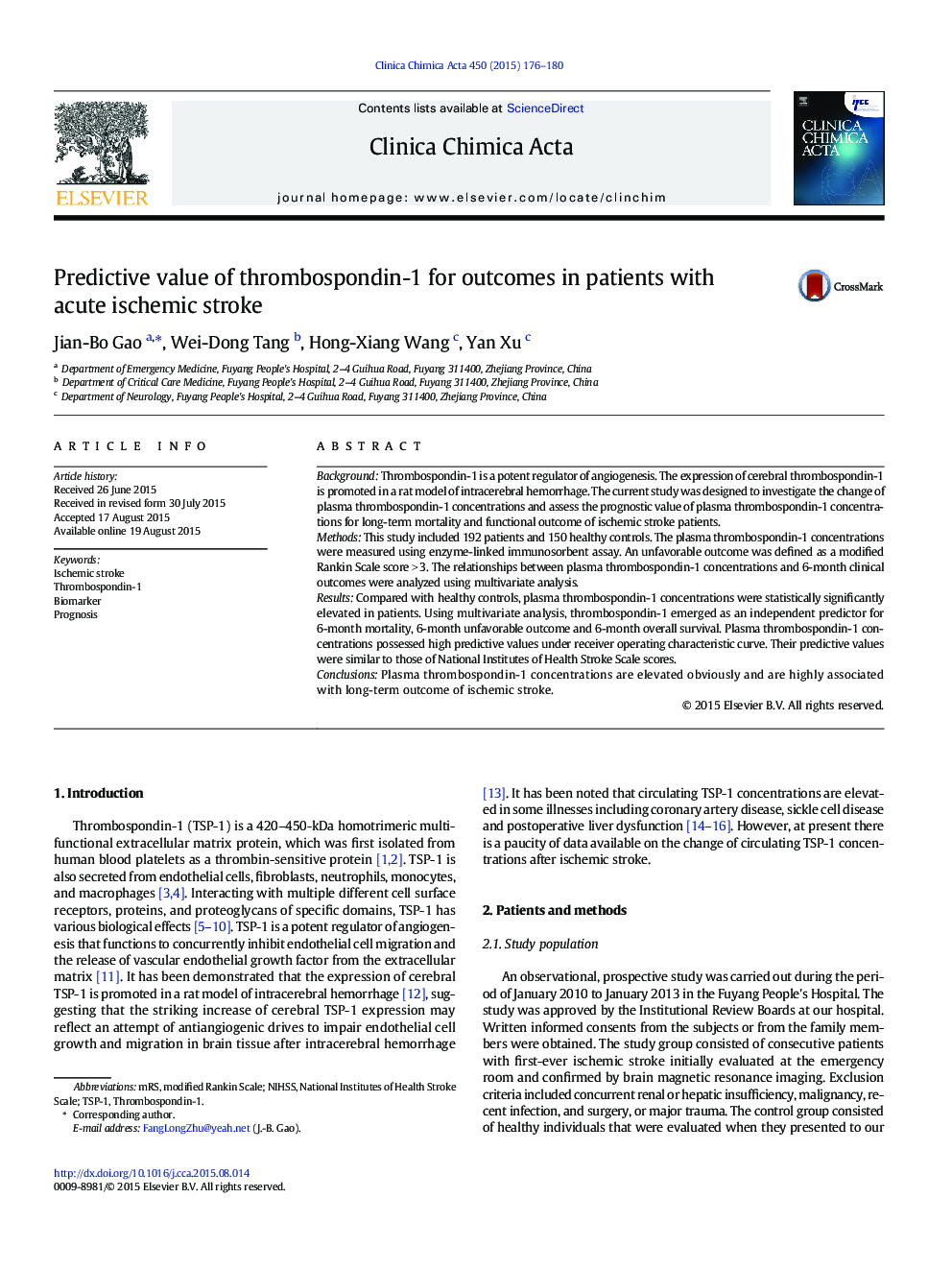| Article ID | Journal | Published Year | Pages | File Type |
|---|---|---|---|---|
| 1965222 | Clinica Chimica Acta | 2015 | 5 Pages |
•Plasma thrombospondin-1 levels are elevated after ischemic stroke.•Plasma thrombospondin-1 levels independently predict prognosis of ischemic stroke.•Plasma thrombospondin-1 levels have high predictive values for prognosis of ischemic stroke.
BackgroundThrombospondin-1 is a potent regulator of angiogenesis. The expression of cerebral thrombospondin-1 is promoted in a rat model of intracerebral hemorrhage. The current study was designed to investigate the change of plasma thrombospondin-1 concentrations and assess the prognostic value of plasma thrombospondin-1 concentrations for long-term mortality and functional outcome of ischemic stroke patients.MethodsThis study included 192 patients and 150 healthy controls. The plasma thrombospondin-1 concentrations were measured using enzyme-linked immunosorbent assay. An unfavorable outcome was defined as a modified Rankin Scale score > 3. The relationships between plasma thrombospondin-1 concentrations and 6-month clinical outcomes were analyzed using multivariate analysis.ResultsCompared with healthy controls, plasma thrombospondin-1 concentrations were statistically significantly elevated in patients. Using multivariate analysis, thrombospondin-1 emerged as an independent predictor for 6-month mortality, 6-month unfavorable outcome and 6-month overall survival. Plasma thrombospondin-1 concentrations possessed high predictive values under receiver operating characteristic curve. Their predictive values were similar to those of National Institutes of Health Stroke Scale scores.ConclusionsPlasma thrombospondin-1 concentrations are elevated obviously and are highly associated with long-term outcome of ischemic stroke.
